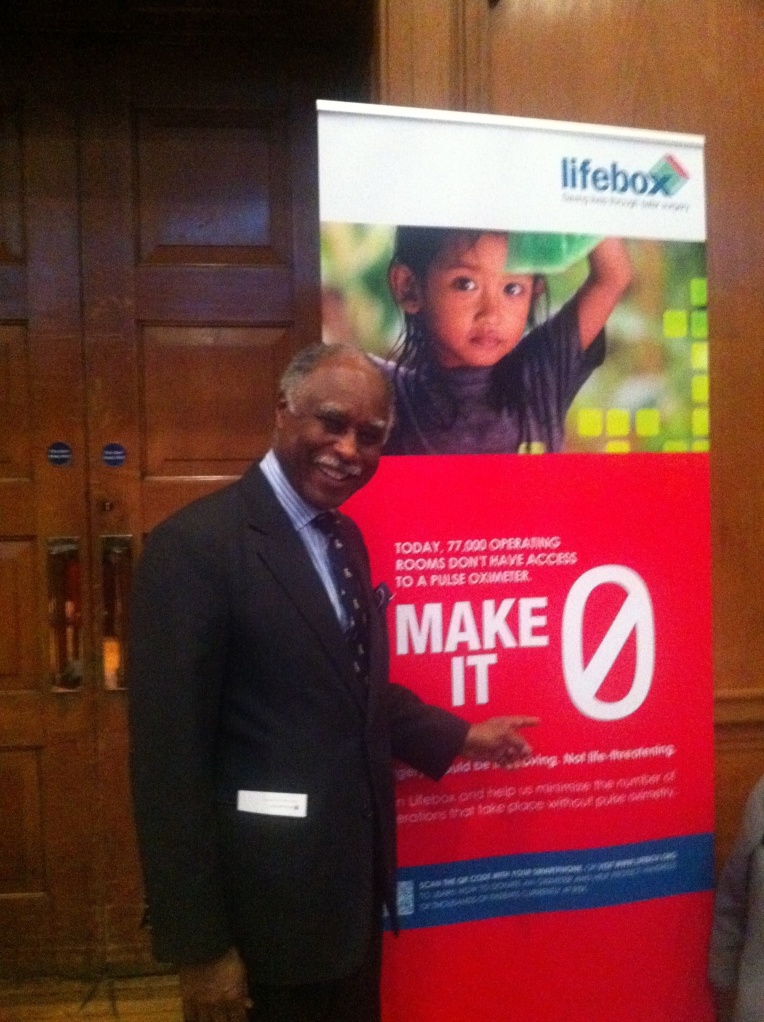Surgery is aimed at the majority, not the rich
Did you know that a full 11% of the global burden of violence and injury – which occurs overwhelmingly in low and lower-middle income – countries could be treated with surgery?
That’s an incredible opportunity to save lives! And it’s one of the reasons why we need to do something about the fact that the poorest third of the world’s population receives only 3.5% of the world’s major surgical procedures (the richest third receives 73.6%).
At Lifebox we’re regularly shocked by these statistics – but we also see how many people and organizations there are committed to making a difference. Last Friday we were lucky enough to meet some of them, at the Global Surgical Frontiers Day, hosted by the Royal College of Surgeons.
Professor Chris Lavy, who worked as an orthopaedic surgeon for a decade in Malawi, brought together more than twenty organizations of all different sizes to present their initiatives and talk about opportunities for working together.
Some groups, like Aid to Hospitals Worldwide, redress the balance shipping container by shipping container – they send recycled NHS equipment to ill-equipped facilities in low-resource countries. Others, like Out To Africa, nurture direct links, pairing colleagues between the Mid Essex Hospital in Chelmsford and the University Teaching Hospital in Zambia to support professional development.
Some, like the College of Surgeons of East, Central and Southern Africa (COSECSA) cross a continent, helping to develop national surgical policy, running training and exams. Others, like Mercy Ships cross waves and oceans, in liners refitted with operating rooms, surgeons and family on board, to perform crucial procedures docked along the coast of Africa.
Like we said, the statistics made our eyes water, and the personal stories – two-year old twins who received cataract operations through Mercy Ships and woke up to see their mother – and each other – for the first time; a gentleman from the Congo eating by himself for the first time in eleven years after receiving prosthetics from Willing and Abel – made our throats catch.
But we straightened our ties and talked to Lord Ribeiro, a leading figure in international surgery, who spoke about his hometown of Achimota in Ghana, and asked attendees to create an organizational structure that could benefit those who really needed it.
During his speech on the surgical and education work done by Mercy Ships Lord McColl told that old story of the child on the shore throwing marooned starfish, one by one, back into the water – what difference will it possibly make? asks the cynic, with so many of them hopelessly beached ?
Well of course it makes all the difference in the world to the ones that get thrown back, reminded His Lordship. But he also acknowledged what was special about this conference – figuring out how we can work together in training and education, making a sustainable change, so that people in low-resource countries get the surgical opportunities they deserve – and lives aren’t beached prematurely.



